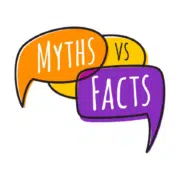Alexa, How Can I Advertise on Smart Speakers?
Hard to imagine, but just a generation ago, we relied on public libraries for the vast majority of our information. Whether you were researching a school project, learning about a hobby, or digging into your family history, a trip to the library, complete with card catalog, seemingly endless stacks of books, and sometimes even the dreaded microfilm, was in order.
My, how things have changed! No longer do we have to get into the car and actually go somewhere. These days, finding information is as simple as talking to a speaker – a smart speaker, that is.
From the Amazon Echo or Dot to Google Home, the Apple HomePod, and others, smart speakers have become a ubiquitous component of 21st century life. Want to hear the news headlines? Ask Alexa. Need tomorrow’s weather forecast? Ask Bixby. Feel like ordering a pizza? Ask Siri. As prices have fallen, adoption of these fun little devices has spread quickly. Currently, more than one in four U.S. adults owns a smart speaker, with 40 percent of them having two or more such devices in their home, according to the 2019 Smart Speaker Consumer Adoption Report by Boston-based Voicify.
In 2018, Americans conducted an average of 1 billion voice searches each month. By 2020, it’s estimated that half of all online searches will be conducted via voice search. Despite their immense popularity, smart speaker makers are not yet accepting paid advertising, with a few exceptions. (Amazon allows advertisements on music, podcast, and flash briefings, for example.) However, those restrictions may soon be loosening up, due to consumer interest. According to the 2017 Google/Peerless Insights report, “Voice-Activated Speakers: People’s Lives Are Changing,” more than half of smart speaker owners would like to hear about deals, sales and promotions from brands via their device.
While smart speaker advertising is still in its infancy, now is the time for marketers to begin honing their strategy, as it will require a completely different approach than traditional Internet advertising. As mentioned above, you can buy ad space on Alexa podcasts, music streaming services, and flash briefings. You can also create a branded Alexa Skill or Google Home app that provides a useful service, while tying back to your brand. Take tequila maker Patron. In 2016, they created the “Ask Patron” Skill, which gives users the ability to tell Alexa, “Ask Patron for a cocktail recipe,” and be rewarded with a list of cocktails, many of which incorporate Patron tequila.
You can also customize SEO for voice search to enhance the likelihood your content will be mentioned in search results. Currently, the most popular smart speakers are made by Amazon or Google, which means user voice queries are processed by Bing or Google. Keep this in mind and strive to build conversational, FAQ-style content into your pages.
Whatever approach you decide to take, now is the time to start mapping out a strategy, so you won’t be playing catch-up when Amazon, Google, and others open the door to advertising on smart speakers in the near future.









